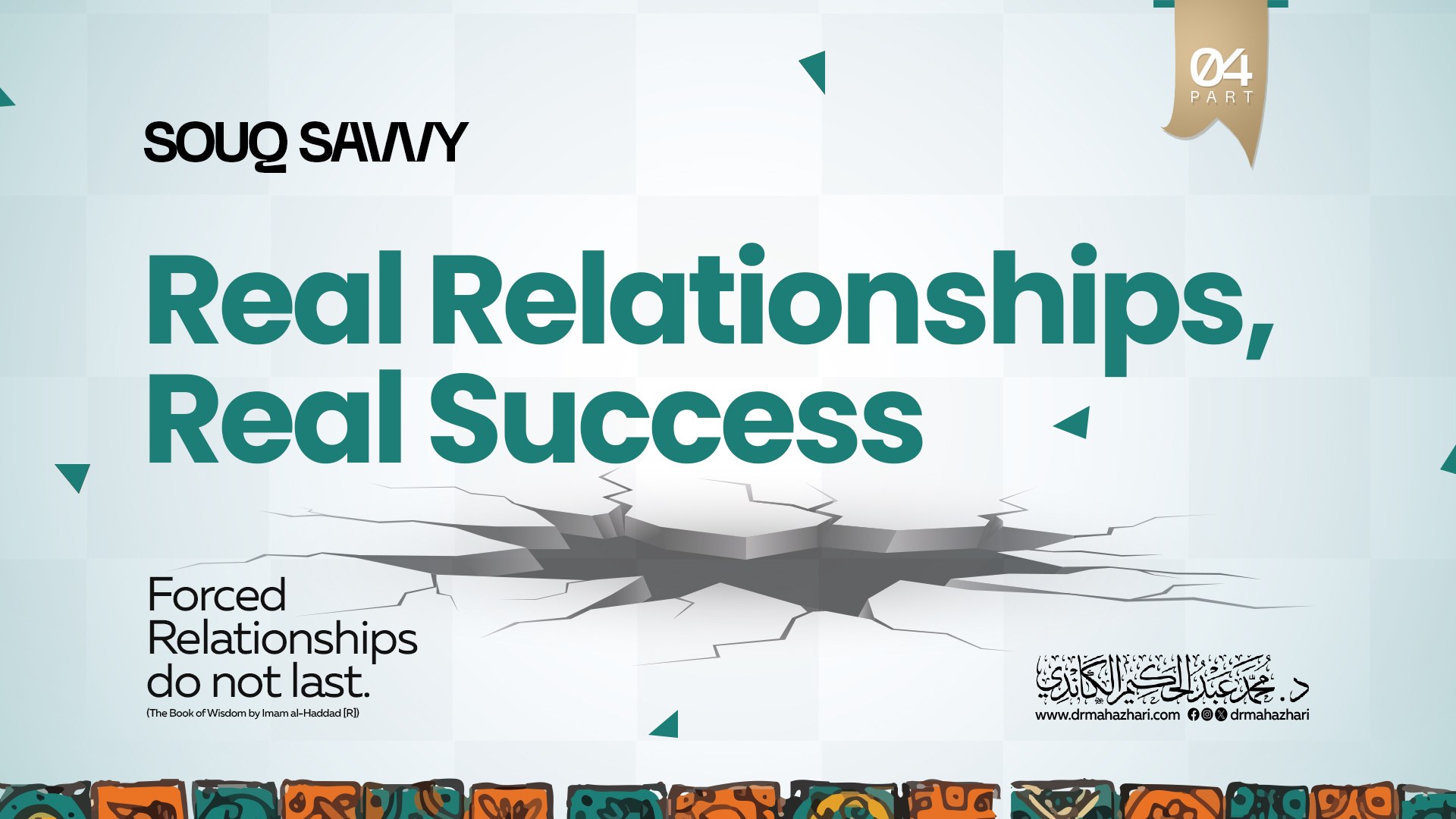Part: 4
Real Relationships, Real Success
Dr. MAH Azhari

Forced Relationships do not last.
(The Book of Wisdom by Imam al-Haddad[R])
Forced relationships, whether in business or personal life, rarely last. In business, relationships thrive when they are genuine. When people come together with real interest, respect, and shared values, their connections are more likely to succeed and grow. On the other hand, when relationships are forced, they often miss these key elements and become shallow, making them vulnerable to failure.
Business partnerships are strongest when there is a natural alignment of goals. If companies collaborate out of pressure or necessity rather than a shared vision, they often face difficulties. These partnerships may suffer from cultural clashes, mismatched goals, or lack of commitment, leading to eventual failure. A well-known example is the 2011 partnership between Microsoft and Nokia. This collaboration, driven by market pressure rather than a genuine fit, failed due to operational and cultural differences, causing significant losses and Nokia's decline in the mobile market.
In a similar way, forcing teams to work together in an organization without shared goals can lead to problems. If employees are pushed into teams where they don’t naturally connect or have common objectives, communication breakdowns and conflicts can arise. Teams work best when their members come together willingly, complementing each other’s skills and sharing mutual respect.
In marketing and customer service, forced interactions can feel artificial and pushy, which can harm trust and damage a company’s reputation. When companies try too hard to engage customers without truly understanding their needs, they risk alienating them. On the other hand, businesses that connect with customers genuinely, offering products and services that align with their values, tend to build stronger, lasting relationships.
The Islamic teachings provide valuable lessons in this regard. The Quran emphasizes that sincerity and voluntary actions are essential, as stated: “There is no compulsion in religion” (Quran 2:256). This principle highlights those genuine connections, whether in faith or business, cannot be forced. Relationships should be based on mutual interest and ethical conduct. The Prophet Muhammad ﷺ also stressed the importance of honesty and sincerity in all dealings. He said, “The religion is sincerity” (Sahih Muslim). This hadith emphasizes that true relationships—whether with business partners, employees, or customers—should be built on honesty, mutual benefit, and sincere intentions, rather than being artificial or forced.
In conclusion, forced relationships, whether in partnerships, team dynamics, or customer interactions, often lead to failure. True success in business comes from authenticity, mutual respect, and shared values. Islam reinforces the importance of sincerity and ethical behavior, teaching us that lasting relationships must be built on genuine efforts and mutual understanding, rather than force or compulsion.
